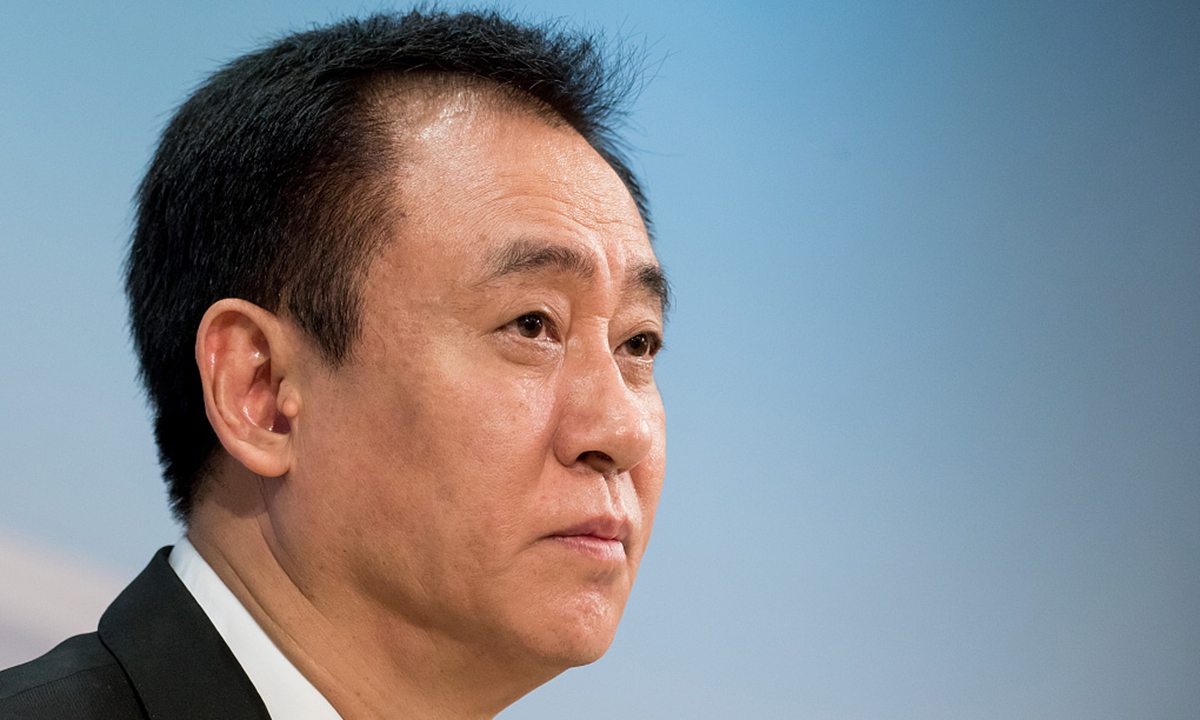
Xu Jiayin Photo:VCG
Xu Jiayin, or Hui Ka Yan, founder of the heavily indebted real estate developer China Evergrande Group is selling more assets, including nine percent of his Evergrande's stock holdings, worth HK$2.68 billion ($344 million) in his latest efforts to meet company obligations.
Xu Jiayin sold 1.2 billion shares of Evergrande at an average price of HK$2.23 each on Thursday, Hong Kong Stock Exchange (HKEX) filings showed.
The share sale, which was worth a total of HK$2.68 billion, lowers Xu's stake in the Shenzhen-based real estate company to 67.9 percent from 77 percent. Before the filings, Evergrande shares closed down 10.4 percent at HK$2.5 on Friday.
Evergrande's new energy vehicle branch Evergrande Auto disclosed in a HKEX filing on Friday that the company has retired 2.66 million square meters of land worth 1.284 billion yuan. The funds will be mainly used for the construction of the company's housing projects and the payment of workers' wages.
Evergrande's land zoned for building a football stadium in Guangzhou city, South China's Guangdong Province has been reclaimed by the local government for auction, according to the sports section of the People's Daily on Wednesday.
Evergrande's football stadium was originally conceived to surpass the scale of Camp Nou Stadium of FC Barcelona, and would become one of the largest football stadiums in the world.
Evergrande has managed to avert default on multiple instances, ever since the news about its liquidity crunch broke out and as it grapples with $300 billion in estimated liabilities. Evergrande failed to pay coupons totaling $82.5 million due on November 6 and investors are on tenterhooks to see if it can meet its obligations before a 30-day grace period ends on December 6.
Earlier this month, Xu was reportedly said to have raised more than 7 billion yuan in cash by selling off personal assets handing the money to the group for the monthly payment of employee salaries, interest payment on bonds, and resumption of major housing projects in major Chinese cities.
Global Times




